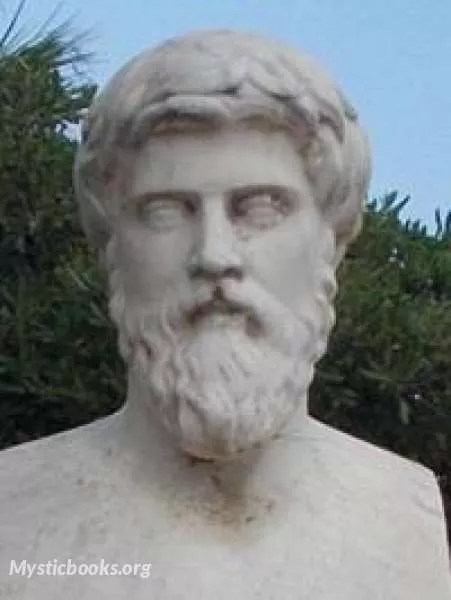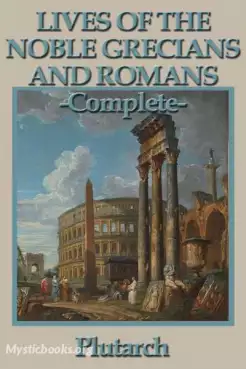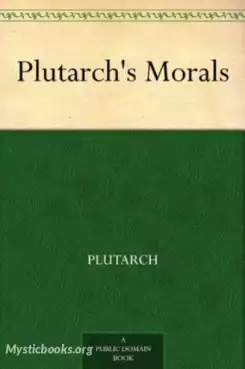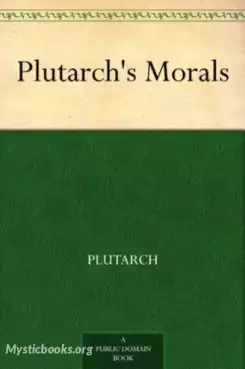
Timeline
Title
Country/Nationality
Plutarch
Plutarch was a Greek Middle Platonist philosopher, historian, biographer, essayist, and priest at the Temple of Apollo. He is known primarily for his Parallel Lives, a series of biographies of illustrious Greeks and Romans, and Moralia, a collection of essays and speeches. Upon becoming a Roman citizen, he was named Lucius Mestrius Plutarchus (Λούκιος Μέστριος Πλούταρχος).
Plutarch was born to a prominent family in the small town of Chaeronea, about 30 kilometres (19 mi) east of Delphi, in the Greek region of Boeotia
Plutarch studied mathematics and philosophy in Athens under Ammonius from 66 to 67.
Plutarch was a vegetarian, though how long and how strictly he adhered to this diet is unclear. He wrote about the ethics of meat-eating in two discourses in Moralia.
At some point, Plutarch received Roman citizenship. As evidenced by his new name, Lucius Mestrius Plutarchus, his sponsor for citizenship was Lucius Mestrius Florus, a Roman of consular status whom Plutarch also used as a historical source for his Life of Otho.
In addition to his duties as a priest of the Delphic temple, Plutarch was also a magistrate at Chaeronea and he represented his home town on various missions to foreign countries during his early adult years. Plutarch held the office of archon in his native municipality, probably only an annual one which he likely served more than once. He busied himself with all the little matters of the town and undertook the humblest of duties.
Plutarch spent the last thirty years of his life serving as a priest in Delphi. He thus connected part of his literary work with the sanctuary of Apollo, the processes of oracle-giving and the personalities who lived or traveled there. One of his most important works is the "Why Pythia does not give oracles in verse" (Moralia 11) ( "Περὶ τοῦ μὴ χρᾶν ἔμμετρα νῦν τὴν Πυθίαν"). Even more important is the dialogue "On the E in Delphi" ("Περὶ τοῦ Εἶ τοῦ ἐν Δελφοῖς"), which features Ammonius, a Platonic philosopher and teacher of Plutarch, and Lambrias, Plutarch's brother. According to Ammonius, the letter E written on the temple of Apollo in Delphi originated from the following fact: the wise men of antiquity, whose maxims were also written on the walls of the vestibule of the temple, were not seven but actually five: Chilon, Solon, Thales, Bias and Pittakos. However, the tyrants Cleobulos and Periandros used their political power in order to be incorporated in the list. Thus, the E, which corresponds to number 5, constituted an acknowledgment that the Delphic maxims actually originated from the five real wise men. The portrait of a philosopher exhibited at the exit of the Archaeological Museum of Delphi, dating to the 2nd century AD, had been in the past identified with Plutarch. The man, although bearded, is depicted at a relatively young age. His hair and beard are rendered in coarse volumes and thin incisions. The gaze is deep, due to the heavy eyelids and the incised pupils. The portrait is no longer thought to represent Plutarch. But a fragmentary hermaic stele next to the portrait probably did once bear a portrait of Plutarch, since it is inscribed, "The Delphians along with the Chaeroneans dedicated this (image of) Plutarch, following the precepts of the Amphictyony" ("Δελφοὶ Χαιρωνεῦσιν ὁμοῦ Πλούταρχον ἔθηκαν | τοῖς Ἀμφικτυόνων δόγμασι πειθόμενοι" Syll.3 843=CID 4, no. 151).
Books by Plutarch

Parallel Lives of the Noble Greeks and Romans
Plutarch's Lives of the Noble Greeks and Romans, commonly called Parallel Lives or Plutarch's Lives, is a series of 48 biographies of famous men, arranged in pairs to illuminate their common moral virtues or failings, probably written at the beginnin...

The Morals (Moralia), Book 1
The Moralia is a group of manuscripts dating from the 10th-13th centuries, traditionally ascribed to the 1st-century Greek scholar Plutarch of Chaeronea. The eclectic collection contains 78 essays and transcribed speeches. They provide insights into...

The Morals (Moralia), Book 2
The Moralia (loosely translatable as "Matters relating to customs") of the 1st-century Greek scholar Plutarch of Chaeronea is an eclectic collection of 78 essays and transcribed speeches. They give an insight into Roman and Greek life, but often are...